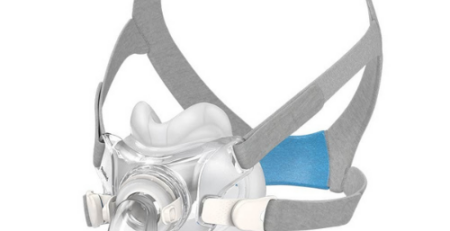Consequences of not treating sleep apnea: health risks
Getting a good night’s sleep is essential for good health, but for those suffering from sleep apnea, rest can be seriously impaired. Sleep apnea is a condition in which breathing is repeatedly interrupted during the night, preventing the body from getting the oxygen it needs. Many people are unaware that they suffer from this condition, since the most obvious symptoms, such as snoring and episodes of breathlessness, occur during sleep. However, if left untreated, sleep apnea can have serious short- and long-term health consequences.
Constant interruptions in breathing lead to poor sleep quality, which has a negative impact on daily life and general well-being. Daytime fatigue, cardiovascular problems, metabolic disorders and cognitive impairment are just some of the consequences of this disorder. Identifying the risks associated with sleep apnea and seeking appropriate treatment is essential to avoid serious complications. Below are the main health risks of not treating this disorder.
Fatigue and daytime sleepiness
One of the first effects of untreated sleep apnea is constant daytime fatigue. The repeated interruption of sleep prevents the deep stages of rest from being reached, leading to extreme tiredness, lack of concentration and decreased performance in daily activities. This daytime sleepiness increases the risk of accidents at work and on the road, as it can make it difficult to react quickly to unforeseen events.
Increased risk of cardiovascular disease
Sleep apnea is closely linked to an increased risk of cardiovascular disease. Breathing pauses cause a reduction in oxygen levels in the blood, which puts pressure on the cardiovascular system. Over time, this can lead to hypertension, arrhythmias, heart failure and even heart attacks. In addition, people with sleep apnea are more likely to suffer strokes due to the lack of oxygen in the brain.
Metabolic problems and risk of diabetes
Sleep apnea also has a significant impact on metabolism. Lack of restful sleep affects insulin regulation and increases insulin resistance, which increases the risk of developing type 2 diabetes. In addition, hormonal imbalances caused by apnea can lead to weight gain and obesity, two factors which in turn aggravate the sleep disorder, creating a vicious cycle that is difficult to break.
Cognitive impairment and neurological problems
Oxygen deprivation and lack of adequate rest affect brain function. People with sleep apnea may have memory problems, difficulty concentrating and an increased risk of neurodegenerative diseases, such as Alzheimer’s disease. Lack of oxygen to the brain can also cause mood swings, increasing the likelihood of depression, anxiety and irritability.
Impact on mental health and mood
Not sleeping well directly affects emotional stability. Untreated sleep apnea can lead to mood swings, causing anxiety, stress and depression. Irritability and lack of energy can affect personal relationships and performance at work or in social life. In addition, constant fatigue can reduce motivation and the ability to face daily challenges.
Reduced quality of life
The combination of fatigue, health problems and cognitive difficulties can significantly affect the quality of life of people suffering from sleep apnea. The feeling of being poorly rested, together with the associated health problems, can limit the ability to enjoy daily activities and affect productivity at work.
Decreased sex drive and relationship problems
Physical exhaustion and lack of energy can affect libido and sex life. Sleep apnea can also contribute to erectile dysfunction in men and decreased desire in both sexes. In addition, loud snoring and interrupted breathing can be uncomfortable for partners, which can lead to relationship problems and affect intimacy.
Increased risk of premature death
Studies have shown that untreated sleep apnea is associated with an increased risk of premature death. Cardiovascular complications, sleep-related accidents and metabolic problems can reduce life expectancy if appropriate treatment is not sought.
Complications from surgery and medical treatment
People with undiagnosed sleep apnea are at increased risk during medical procedures and surgery. Anesthesia and certain medications can aggravate breathing difficulties, increasing the risk of complications. It is therefore essential to inform health professionals if sleep apnea is suspected before undergoing any intervention.
Sleep apnea is much more than a simple problem of snoring or interrupted rest. When left untreated, it can have serious health consequences, affecting the heart, metabolism, brain function and quality of life in general. Identifying the symptoms and seeking medical help is key to preventing complications and improving well-being.
The treatments available, such as continuous positive airway pressure (CPAP) therapy, lifestyle changes and, in some cases, surgery, can make a big difference to the lives of people with this disease. Sleeping well is not a luxury, but a necessity for maintaining good health and preventing long-term illness.
Terapiacpap
Latest posts by Terapiacpap (see all)
- Sleep apnea for the newly diagnosed: everything you need to know - 5 de March de 2025
- Restless legs syndrome, what is it and how to treat it? - 28 de February de 2025
- Consequences of not treating sleep apnea: health risks - 21 de February de 2025
- Exercises to strengthen breathing and reduce sleep apnea - 14 de February de 2025
- Tips for renewing your pillow and sleeping better, not just any pillow will do! - 28 de January de 2025












Leave a Reply